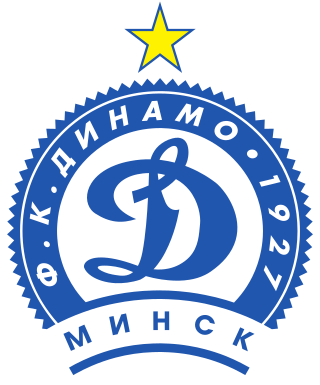Organization
The football competitions were conducted by the All-Union Committee on sports and physical culture under the rules adopted in 1937 and 1938. [1] Competitions were conducted among team of masters of four categories of sports societies: the Workers-Peasants Red Army team (CDKA), trade union sports societies (16), the Order of Lenin sports society "Dynamo" (6), the Order of Lenin sports society "Spartak" (3). [1]
The competitions followed its playing calendar adopted by the Central sports inspection. [1] All societies were mandated to provide a grass turf field for games that corresponds to requirements presented by the international rules with corresponding equipment on the field: locker rooms for players and office space for referees. [1] Each team was mandated to have no more than 25 players on its roster. [1] Additional players or replacing players could be added no less than 10 days before a game and had to be approved by the Central sports inspection. [1] If a team would field a player who is not on the approved roster, that team despite the outcome of game receives a loss and their opponents a win. [1] For teams that participate in the Championship have the right to play all fizkulturniks (athletes) who are members of the corresponding sports society. [1] Servicing of the Championship by the referee staff is entrusted to the All-Union Judging Panel. [1]
The championship winner is awarded the All-Union Committee banner. [1] Beside players, certificates, tokens and premiums are also given to nachalnik komandy (team's chief), politruk (political officer), and coach. [1]
All teams are obligated to play the season's calendar to the end. [1] A withdrawn team would be barred from the 1939 season. [1] Points that were received in games with the withdrawn team are zeroed. [1] Players of the withdrawn team cannot play for other collectives to the end of the season's calendar. [1]
On equal points for two or more teams, additional games would be conducted in a single round-robin format to determine the order of their places. [1]
Protests about the improperly played game are submitted by team's official representative to the Central Sports Inspection no later than 24 hours after the game either personally or by telegraph and simultaneously to the game's referee, and representative of the opposing team. [1] All replay games must be finished by end of the season's calendar. [1]
Ejected from the field players for disciplinary fouls automatically miss one game and furthermore until the Central Sport Inspection decision are barred to play. [1] In case of a rough evil-minded play, they are subject to criminal liability. [1]
Organization that would host a team for a match are obligated to provide footballs of corresponding size and weight according to the rules; in case of football availability of the visiting team, the match is conducted by a better ball deemed by a referee. [1] The stadium administration is obligated on the referee's request provide scales, measuring tape, calipers to measure a ball, turf fields and goal posts. [1]
It was mandated that the stadium entrance fee would be no more than 2 rubles, side seats no more than 3 rubles, center seats no more than 5 rubles. [2] For every game there also should be allocated 10% of preferential tickets for the price of no more than 1 ruble for the Red Army servicemembers and students. The visiting team has a right to receive 50 free tickets.
Two teams that place the last league's table position will leave the competition and won't participate in the 1939 season. [1] Two teams that showed good technique results, in competitions of Soviet Cup, republican or city championships, friendlies with the best team of the Union, may be allowed in the 1939 season among demonstration teams. [1]
